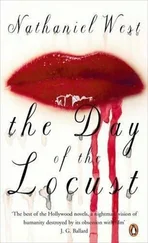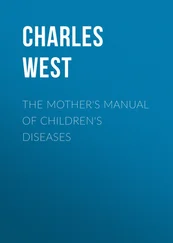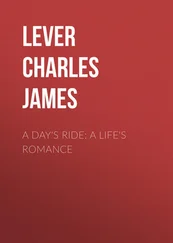No one knew where the boy got the name of Wolf, but Wolf himself remembered the day he learned he was called that. It was an important day in the young man’s life, for it marked the first time he had left the sanctuary of the mountains. And his first contact was not with Shoshone hunters but in a chance meeting with a group of Crow hunters in the eastern foothills of the Wind River Range. Now, on this day in June, he recalled those circumstances as he casually watched the three prostitutes prepare supper.
From a rocky ledge at the top of a cliff, he had watched the group of five Crow hunters following a wounded deer through the thick brush lining the stream below him. They were lucky to find deer, he thought, for these hills are about hunted out . Content to remain an observer, he remained kneeling on one knee, watching the event and thinking that if they did not find the deer, he would make use of their kill. A rustling among the willows on the opposite side of the stream caught his eye and he stared hard in that direction. A moment later, he glimpsed the head and shoulders of a Shoshone warrior as he pushed stealthily through the willow thicket. The first warrior was followed by a second, a third, and a fourth, all carrying rifles, and all advancing upon the unsuspecting Crows. Their intent was obvious, but Wolf felt no responsibility toward either faction, no more so than if it had been a fight between two beasts of the forest; so he remained hidden, content to watch the drama.
Possessing the element of surprise, the Shoshone hunters struck first, just as the Crows were about to find the deer, catching them completely off guard. The initial volley killed three of the Crows before they could respond. The remaining two, although one was wounded, reacted quickly enough to retaliate, killing two of their attackers. At that point, it became a duel between the four remaining combatants at point-blank range. After a series of shots were exchanged, all went quiet, and Wolf moved closer to the edge of the ledge in an effort to see what had happened. After a lengthy pause with no sound from below, he surmised that they had managed to kill each other, and as a result, it occurred to him that fate had provided him the opportunity to acquire weapons and possibly a horse, not to mention a fresh supply of meat. The thought of it caused a rush of excitement in his body. He had been without shells for his shotgun for several years, and he had never owned a horse.
Jumping from ledge to ledge like the goats he had observed in the high mountains, he descended the cliff to the stream below. He paused to take a look around the thicket before moving cautiously through it to the scene of the battle. The bodies lay close together, all apparently dead. He recognized the Shoshone hunters, because he had seen them many times. The others were not Indians he had seen before. Looking about him, he was excited to see rifles of several different makes, but the one that captured his attention was one with a lever-type action, lying next to one of the Shoshones. He immediately dropped the single-shot, bolt-action rifle he had first spotted and picked up the Henry. Turning it over and over, impressed by the cold, lethal beauty of the weapon, he was aware of a feeling of new confidence, for it gave him a powerful weapon for protection, far superior to his crude bow and arrows.
He rolled the body over to remove the cartridge belt. As he was strapping it around his waist, he sensed a possible danger, and he looked quickly at a body lying several feet away in time to catch the movement of the eyelids as they slammed shut. Immediately alert, he cocked the rifle and prepared to defend himself, but there was no threat from the wounded man, since Wolf could see the man’s rifle lying several yards away. Having no animosity toward either side in the short, violent confrontation that had just taken place, Wolf went to the wounded man’s side and knelt. When he rolled him over on his back, the Indian’s eyes fluttered wide open and the two men stared at each other for a few moments—the white man in curiosity, the Indian in helpless fear that the scalping knife would come next.
Wolf looked at the hole in the Indian’s upper chest and nodded solemnly. With no knowledge of any Indian dialects, he asked simply, “How bad?”
There was a flicker of hope in the wounded man’s eyes, and he rasped a response in English. “Don’t know. Hurt like hell.”
“I’ll try to help,” Wolf said, almost startled when the Indian spoke. It was almost as strange to hear his own voice as well, for he had spoken very little over the past several years. “I’ll be back,” he said, and rose to his feet then to quickly check the other bodies to make sure they were dead. He wouldn’t hesitate to help the wounded man, but he wanted to make sure he didn’t get a bullet in the back while he was doing it. After he was satisfied that the other warriors offered no threat, he returned to the wounded man’s side. “I don’t know much about doctorin’,” he said, “but I’ll do what I can.”
“Get horses first,” the Indian said.
“All right,” Wolf said. He had not thought about the horses, but he realized then that he should have. He immediately disappeared into the willows where he had seen four Indian ponies when he came down from the cliff. Knowing there should be five more close at hand, he continued to follow the stream until he came upon the other horses. He tied the reins together to a length of rawhide rope he found on one of the horses and led the five back to pick up the other four. When he returned to the scene of the fight, he tied his lead rope to a tree and left the horses to stand in a bunch.
While Wolf was fetching the horses, the wounded man had managed to pull himself up to a half-raised position with his back against a tree. Though obviously in great pain, the Indian gazed steadily at his white benefactor as he approached once again. “You’re the one they call Wolf,” he pronounced, for he was sure it could be no other.
Not understanding, Wolf responded with a blank stare at first, then asked, “Why do you say that? I don’t know that name.”
Certain that he was right, the Indian said, “That is what they call you. My name is Big Knife of the Absaroka people. I thank you for your kindness.”
Remembering that Absaroka was how the Crows referred to themselves, he was somewhat surprised to find a Crow hunting party in this part of the Wind River Mountains. “My name is Tom Logan,” he said. “I don’t know this name you call me.” It occurred to him then that he had had to pause to think for a moment before recalling his name. It had been years since it had been necessary. He turned his attention to the care of Big Knife’s wound then. There was little more he could do for the wound than to fetch water from the stream and clean it as best he could. He had failed to notice earlier that, in addition to the chest wound, there was a long, shallow wound in Big Knife’s scalp on the side of his head. Though not serious, this wound probably explained the unconscious state he was in when Wolf first arrived.
As his brain cleared somewhat from the grazing blow to his head, Big Knife realized that the wound in his chest was probably not as serious as he had at first thought. “I don’t think bullet in too deep,” he said. “Maybe you pull it out.” Wolf nodded agreeably and drew his skinning knife, grateful for Big Knife’s suggestion, having been undecided what he should do to help the wounded man. Proving the Crow’s prognosis to be correct, Wolf was successful in probing for the lead slug and extracted it with a minimum of harm to the wound. At Big Knife’s suggestion, Wolf built a fire for the purpose of cauterizing the wound. The treatment left Big Knife with limited use of his left arm and shoulder, but otherwise able to ride.
Читать дальше











